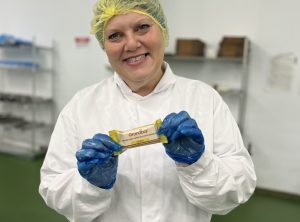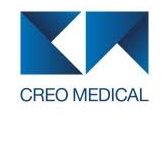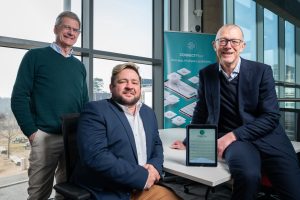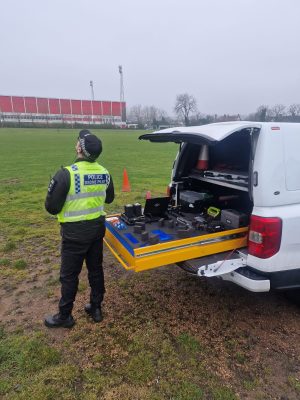Health tech start-up delivers ‘world-first’ for sight loss prevention
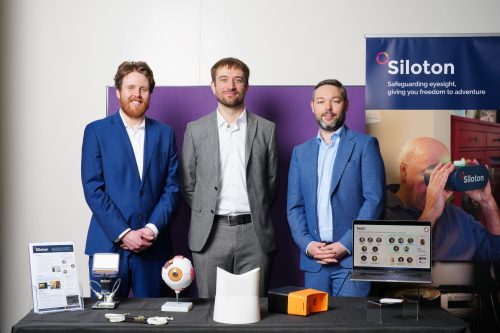
Improved diagnosis and treatment for eye diseases affecting the sight of millions across the globe has taken a major step forward, after Bristol-based health technology start-up Siloton became the first commercial organisation in the world to take a sub-surface image of a human retina using photonic chip technology.
Previously only achieved in academic settings, the image was obtained using Siloton’s first-generation optical coherence tomography (OCT) chip, called Akepa. OCT is a non-invasive imaging technique, similar to a high-resolution ultrasound, and is considered to be the gold standard for diagnosing and monitoring eye disease.
However, because of the size and cost of existing systems, the technology can only currently be accessed through hospitals and high-end optometrists. Akepa compresses a tabletop-worth of heavy, expensive, and fragile optical components onto a single piece of material smaller than a £1 coin.
Conditions such as wet age-related macular degeneration (AMD), retinal vein occlusion, and diabetic macular oedema affect millions of people worldwide, putting them at risk of blindness. More than 5% of the world’s population – more than 400 million people – live with a retinal condition.
AMD is the largest cause of sight loss in the UK, affecting more than 700,000 people, and last year the NHS reported that ophthalmology was the busiest outpatient speciality in secondary care, accounting for almost 10% of its waiting list. Siloton’s technology could save the NHS more than £1 billion annually and allow patients to monitor their condition at home, rather than having to regularly attend hospital appointments.
Dr. Alasdair Price, CEO of Siloton, said: “OCT scans are critical to providing the sight-saving eye care that almost everyone will eventually need. However, there is a chronic shortage of imaging devices throughout the world. The Siloton team has shown that we can use affordable and scalable technology to expand the reach of OCT systems, reducing preventable blindness, alleviating pressure on eye clinics, and potentially saving healthcare providers like the NHS billions each year.”
Siloton recently secured £860,000 of new investment to support the development of its technology, taking its total funding to date to £1.7m.

